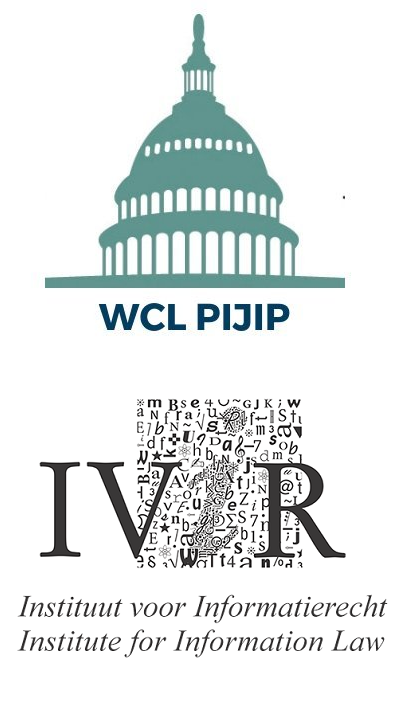PIJIP and IViR to Co-Host Conference on International Copyright and the Cross-Border Use of Research Materials
Published: November 29, 2022

PIJIP and the University of Amsterdam's Institute for Information Law (IViR) will host an upcoming conference to discuss models that international copyright law could use to enable cross border uses of research materials.
Participants will consider modern research methods, such as text and data mining, that necessitate the reproduction of copyrighted works, which may also be sharing among team members in different countries. These methods rely on copyright limitations and exceptions to exist. Participants will strive to adopt a statement of principles and one or more model provisions at this or a later meeting that could guide work in this area.
The conference will be chaired by PIJIP's Profs. Sean Flynn and Christine Haight Farley, and IViR's Martin Senftleben. It will be held December 12-13 in Geneva Switzerland.
Background
The WIPO Standing Committee on Copyright and Related Rights (SCCR) has been discussing limitations and exceptions to copyright since 2003. Since the adoption of the Marrakesh Treaty in 2013, the agenda has been focused on “discussion to work towards an appropriate international legal instrument or instruments (whether model law, joint recommendation, treaty and/or other forms)” on the subjects of libraries, archives, museums, education and research. (WO/GA/41/14). In 2019, the SCCR undertook a series of regional meetings and held an international conference designed to identify priority issues for action. The “Action Plans” were summarized in a Report on Regional Seminars and International Conference on Limitations and Exceptions.
In the 42nd Session of the WIPO Standing Committee on Copyright and Related Rights (SCCR) May, 2022, the African Group proposed a Work Programme SCCR/42/4 Rev. calling for concentrated work toward international instruments on the Action Plan priorities, including “to promote the adaptation of exceptions to the online and cross border environment, such as by permitting teaching, learning and research through digital and online tools.” In the next SCCR, to be held the week of March 12, 2023, the Secretariat will invite presentations “by experts and Members on the possible cross-border problems linked to specific uses of copyrighted works in the online cross-border environment, such as in an online educational class with students in multiple countries, or where collaborating researchers or the subjects of their research are located in different countries.”
The African Group’s initial proposal called attention to several specific models to allow cross border uses of works enabled by limitations and exceptions:
-
“the cross-border use provision proposed by Argentina (SCCR/33/4)” which is modeled on Article 5 of the Marrakesh Treaty;
-
“the legal fiction model adopted in Article 5 of the Directive (EU) 2019/790 of the European Parliament and of the Council of 17 April 2019 on copyright and related rights in the Digital Single Market.”
One could add to these models -- a minimum standard approach that harmonizes research exceptions across borders (as Articles 3 and 4 of the CDSM do for Europe).
Part of the African Group’s proposed work programme, and also a proposal of the United States in previous SCCRs, is to begin the next step toward an international instrument with the development of “objectives and principles.”